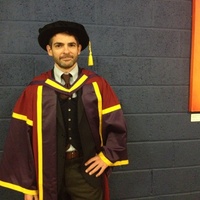
Massimo Egidi
My main research interests are related to the study of bounded rational behaviour in organizations and institutions, as well as of organizational learning. Innovation and creativity in complex environments are correlated research interests. On these topics I have published since the 1990's around 100 papers, articles and book chapters. Academic positions: I am currently Professor Emeritus at Luiss University in Rome, where I teach Behavioral Economics and Psychology. I served as Rector of Luiss for ten years (October 2006 to October 2016). Before I served as Rector of University of Trento (from1996 to 2004) and I have been President of FBK - the Bruno Kessler Foundation in Trento, serving from December 2010 to December 2014.
Address: Via di Villa Emiliani 14 , Roma
Address: Via di Villa Emiliani 14 , Roma
less
Related Authors
Cristina Bicchieri
University of Pennsylvania
Don Ross
University College Cork
Vincenzo Bavoso
The University of Manchester
David Seamon
Kansas State University
Armando Marques-Guedes
UNL - New University of Lisbon
Gary Feinman
Field Museum
Shabib H . Syed
University of the Punjab, Lahore, Pakistan
Jan Blommaert
Tilburg University
Mary Donnelly
University College Cork
Anne-Lise Sibony
UCLouvain (University of Louvain)










Uploads
Papers by Massimo Egidi
Going beyond Luchins’ findings , Egidi shows that the mechanization of thought is originated by a mis-categorization of the problem One of the findings of the experiments on “Target The Two” has been to elicit the elements that in a team trigger exploration of new solutions instead of the exploitation of the old ones, in line with James March’ analysis of organizational change. If individuals, having discovered a style of cooperation in a limited domain, try to make use of the same beyond the original domain, they are in a sense “averse to innovate”. Aversion to innovation may vary in alternative organizational context : a different balance between exploration of new solutions and exploitation of the old ones may characterize organizations as James March’ analysis suggested. The experiments suggest that teams and individuals may have different propensity to innovate and to risk, depending upon their representation of the organizational context and upon the learning process that led them to a routinized behavior.